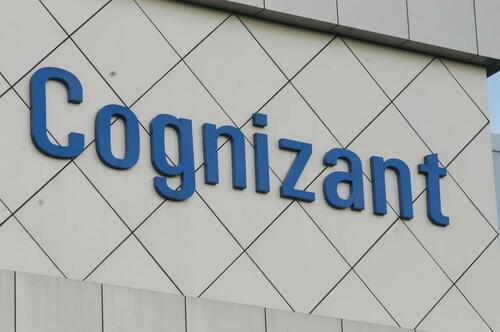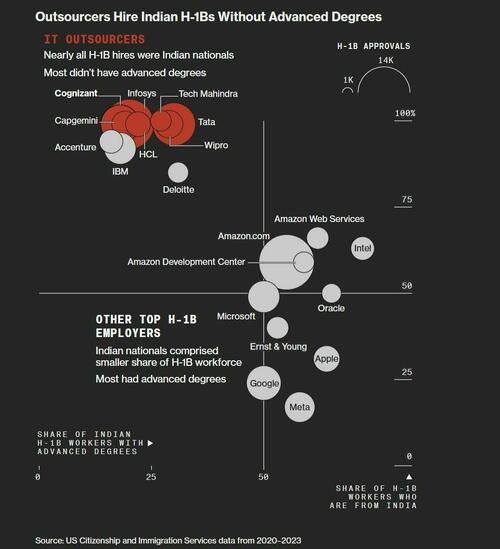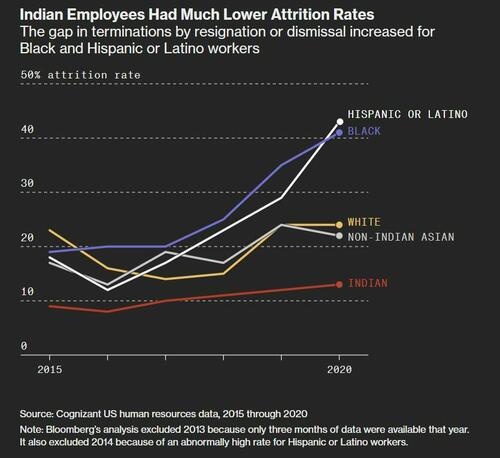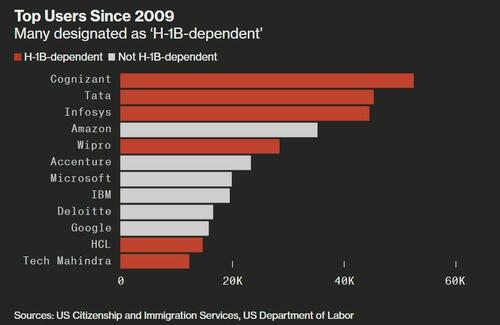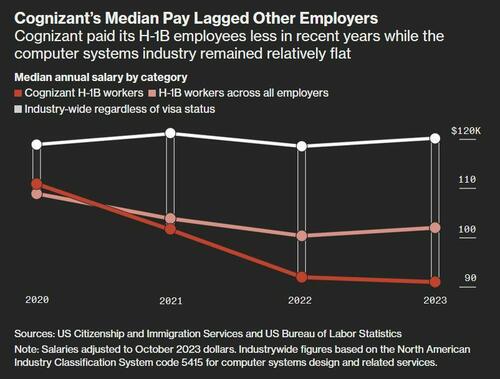Cognizant Discrimination Case Highlights Flaws in H-1B Visa System
In the evolving landscape of global IT services, the recent class-action lawsuit against Cognizant Technology Solutions Corp. stands out as a stark illustration of systemic employment discrimination within major corporations. This case, brought forward by Latreecia Folkes and over 2,000 other plaintiffs, has uncovered deep-rooted biases against non-Indian employees, highlighting troubling practices within the use of the H-1B visa program.
As Bloomberg notes;
In October, a jury in a federal class-action lawsuit returned a verdict that found Cognizant intentionally discriminated against more than 2,000 non-Indian employees between 2013 and 2022. The verdict, which echoed a previously undisclosed finding from a 2020 US Equal Employment Opportunity Commission investigation, centered on discrimination claims based on race and national origin. Cognizant, based in Teaneck, New Jersey, was found to have preferred workers from India, most of whom joined the firm’s US workforce of about 32,000 using skilled-worker visas called H-1Bs.
Cognizant says they’re going to appeal the verdict.
“Cognizant provides equal employment opportunities for all employees and does not tolerate discrimination in any form,” Spokesman Jeff DeMarrais told Bloomberg, adding that the company had sought fewer new visas over the past several years.
“Like many consulting firms and other technology companies in the US, Cognizant utilizes the H-1B visa program to fill positions it cannot fill with available US workers,” he continued.
Early Promises and Professional Setbacks
Latreecia Folkes began her career at Cognizant with notable success, quickly earning accolades for her contributions to a new project. However, her career trajectory took a sudden downturn when she was asked to train a replacement from India.

This marked the beginning of a series of professional disappointments characterized by denied opportunities for advancement, a reflection of a broader corporate bias that she attributed to her nationality and race.
Latreecia Folkes was put on the bench twice during her two years at Cognizant, according to the company’s internal data. She spent less than a month there in late 2016 before finding a position in South Carolina, which required her to fly back and forth from her home in Atlanta. She went on the bench again in March 2017. She said she spent a month trying to get on a new project. After being passed up for multiple positions, she said she was offered one that required her to relocate to Washington, DC. That’s when she filed an internal discrimination complaint, alleging she was being pushed out of the company. -Bloomberg
Despite Folkes’ competence and early success, she found herself sidelined due to systemic preferences for Indian workers, culminating in her dismissal after filing an internal discrimination complaint.
“You get on the bench,” she told the outlet. “In that time, they said they would get you a role for you to apply to internally. And I applied like a dog. I applied, I applied, I applied, almost begging.”
Folkes filed an internal discrimination complaint in 2017. Three days later, she was fired.
Legal Repercussions and Wider Industry Trends
The legal scrutiny into Cognizant’s practices intensified when a jury verdict in October, backed by a previously undisclosed 2020 U.S. Equal Employment Opportunity Commission (EEOC) investigation, confirmed intentional discrimination within the company.
This verdict revealed that Cognizant preferred Indian workers, many of whom were employed under H-1B visas, over their American counterparts. This practice was not isolated to Cognizant; it reflects a widespread industry trend where IT outsourcing companies exploit the H-1B visa system to hire a cheaper, more compliant workforce, often at the expense of U.S. workers’ opportunities and wage conditions.
Meanwhile, a Bloomberg analysis of Cognizant’s internal data found that from 2013 – 2020:
- About two-thirds of the firm’s US-based employees were from India.
- American workers were twice as likely to have their employment “terminated” – by resignation or dismissal – as were their counterparts on visas.
- For Black and Hispanic or Latino workers, the annual rates of such terminations were about three times higher than for Indian nationals.
Cognizant’s DeMarris said Bloomberg’s analysis of terminations is flawed because it doesn’t include visa workers who left the company’s US operations “by choosing to return to their home country.” – something which the company’s lawyers raised in pretrial motions.
The judge in the case, however, ruled that Cognizant had refused to provide information about “what really happened” to such employees – i.e. whether their employment ended or not, and prevented the company from presenting the issue to the jury. DeMarrais wouldn’t say either way, however he did admit that 60% of the company’s US workforce is Asian – including Indian workers.
According to 2023 data the company submitted to the EEOC, however, 70% of Cognizant’s professional and managerial staff reporting to their Texas HQ identified as Asian.
The H-1B Visa Controversy
While the H-1B visa program was designed to allow U.S. employers to hire foreign specialists when qualified Americans are unavailable, it has often been leveraged to fill lower-level, less specialized positions at a lower cost.
Cognizant, along with other outsourcing giants, has faced criticism for this approach, which appears to prioritize cost reduction over the program’s original intent to supplement the American workforce with specialized skills not otherwise available.
The US Department of Labor classifies Cognizant as an “H-1B-dependent” employer, which means more than 15% of its workers have the visas. Companies with that designation are required to attest that they’re not taking jobs from US workers – but only if they pay their visa workers less than $60,000 a year, a threshold that hasn’t been increased in two decades. Consequently, none of the outsourcing firms that have been deemed “H-1B-dependent” – Wipro Ltd, Infosys Ltd, Tata, Cognizant and HCL Technologies Ltd – is required to make the attestations. -Bloomberg
Meanwhile, former Cognizant employees say that the company’s use of Indian workers is nothing more than an attempt to reduce labor costs – an assertion DeMarrais refutes.
That said, the company has seen recent savings from its immigrant workers – whose median pay fell by 20% since 2000.
According to DeMarrais, “Cognizant complies with federal laws regarding pay for visa workers,” adding that the company “disagrees that any financial incentive exists to hire visa workers.”
Former employees, however, say that the company likes H-1B workers because they’ll take inconvenient or less-favorable assignments, and have a hard time jumping between companies because they must persuade new employers to go through the hassle of transferring their visas.
In response to the lawsuit, Cognizant has maintained that its hiring practices are justified by a shortage of suitable U.S. tech workers, asserting a commitment to equal employment opportunities. However, this stance has been met with skepticism, especially given the statistical evidence presented in court showing a pattern of employment terminations disproportionately affecting American employees.
Tyler Durden
Sun, 12/22/2024 – 22:45
